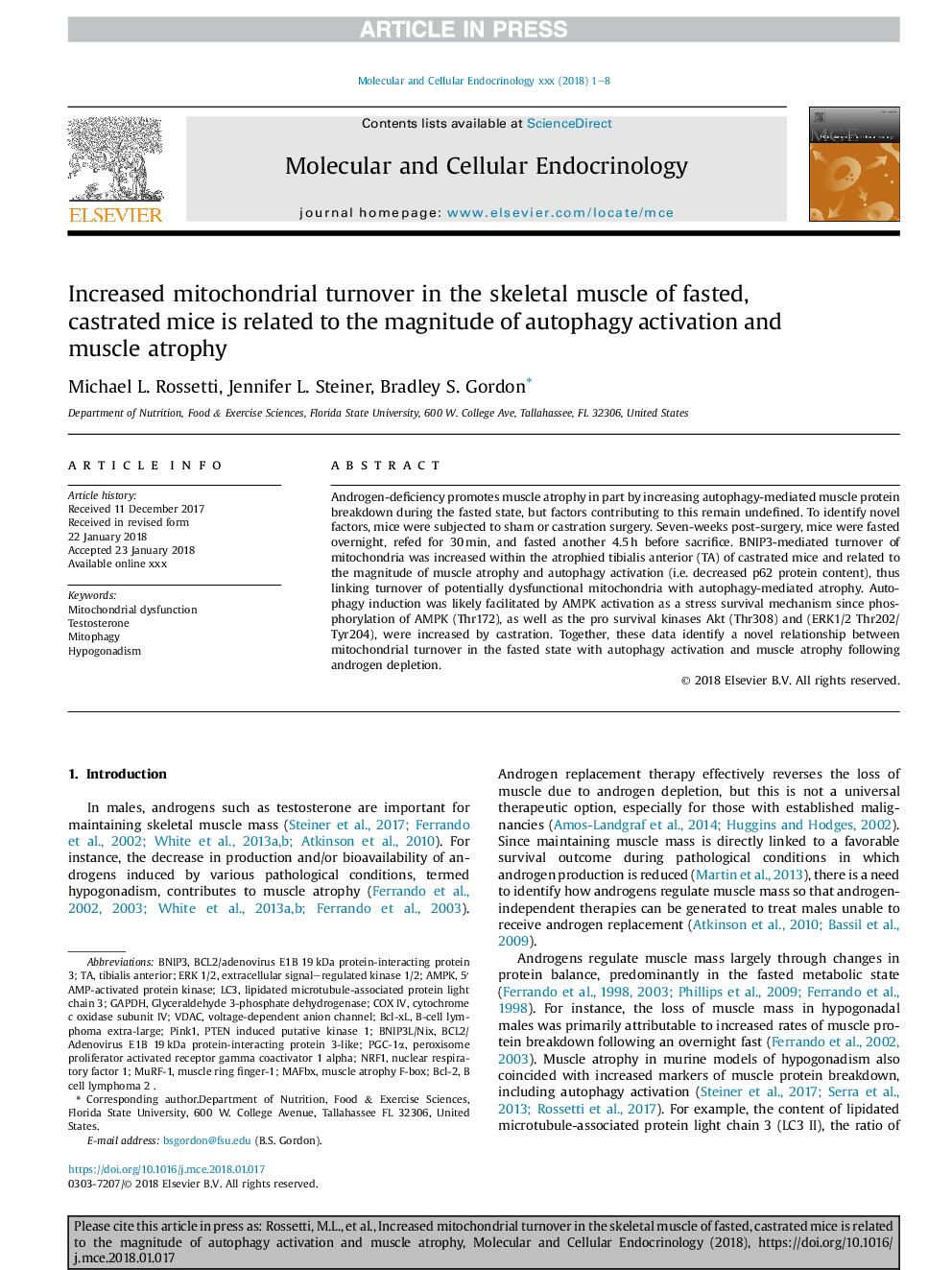| Article ID | Journal | Published Year | Pages | File Type |
|---|---|---|---|---|
| 8476333 | Molecular and Cellular Endocrinology | 2018 | 8 Pages |
Abstract
Androgen-deficiency promotes muscle atrophy in part by increasing autophagy-mediated muscle protein breakdown during the fasted state, but factors contributing to this remain undefined. To identify novel factors, mice were subjected to sham or castration surgery. Seven-weeks post-surgery, mice were fasted overnight, refed for 30â¯min, and fasted another 4.5â¯h before sacrifice. BNIP3-mediated turnover of mitochondria was increased within the atrophied tibialis anterior (TA) of castrated mice and related to the magnitude of muscle atrophy and autophagy activation (i.e. decreased p62 protein content), thus linking turnover of potentially dysfunctional mitochondria with autophagy-mediated atrophy. Autophagy induction was likely facilitated by AMPK activation as a stress survival mechanism since phosphorylation of AMPK (Thr172), as well as the pro survival kinases Akt (Thr308) and (ERK1/2 Thr202/Tyr204), were increased by castration. Together, these data identify a novel relationship between mitochondrial turnover in the fasted state with autophagy activation and muscle atrophy following androgen depletion.
Keywords
NRF1PTEN induced putative kinase 1COX IVB-cell lymphoma extra-largeMuscle RING finger-1Muscle atrophy F-boxMuRF-1MAFbxERK 1/2VDACAMPKLC3GAPDHBcl-2PINK1Bcl-xLPGC-1αBNIP35′ AMP-activated protein kinaseTibialis AnteriorMitochondrial dysfunctiontestosteronecytochrome c oxidase subunit IVNuclear respiratory factor 1B cell lymphoma 2MitophagyHypogonadismvoltage-dependent anion channelglyceraldehyde 3-phosphate dehydrogenase
Related Topics
Life Sciences
Biochemistry, Genetics and Molecular Biology
Cell Biology
Authors
Michael L. Rossetti, Jennifer L. Steiner, Bradley S. Gordon,
